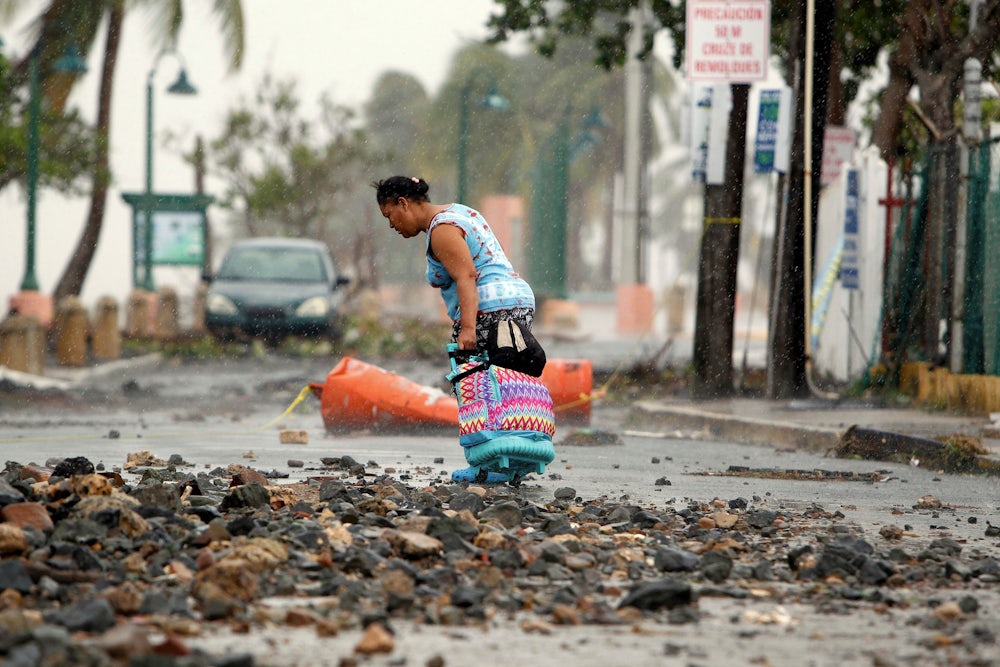Days after Hurricane Maria slammed Puerto Rico, 10 people are dead, the island will be without power for months, and a major dam could burst and displace thousands. Farms are flattened, The New York Times reports, placing the island’s food supply in jeopardy. About 15,000 Puerto Ricans are still in shelters, according to the Associated Press, and it’s not clear when they’ll be able to return home:
“The devastation in Puerto Rico has set us back nearly 20 to 30 years,” said Puerto Rico Resident Commissioner Jenniffer Gonzalez. “I can’t deny that the Puerto Rico of now is different from that of a week ago. The destruction of properties, of flattened structures, of families without homes, of debris everywhere. The island’s greenery is gone.”
The island’s governor requested greater federal assistance over the weekend, and it has yet to appear. (Reporting indicates the White House might get around to it in October.) Donald Trump has been virtually silent on the issue, preferring instead to attack African-American athletes.
But the glacial pace of Congress’s response is part of an older pattern. By denying the island statehood, Congress deprives residents of the vote and of certain funds. Puerto Rico’s economic options are further limited by the Jones Act, as the PBS Newshour reported in 2015; the act “requires everybody in Puerto Rico to buy goods from an American-made ship with an American crew.” In 2016, Congress finally moved to resolve Puerto Rico’s years-old debt crisis—the island was $73 billion in debt—by passing PROMESA, which ostensibly allows the island to restructure its debt.
But PROMESA is essentially an austerity measure. The financial oversight board charged with PROMESA’s implementation has proposed slashing public spending, further eroding the island’s worn safety net. “The plan includes cuts to the University of Puerto Rico, a reduction in pension benefits and a $550 million reduction in the island’s annual health care budget,” Marketplace reported in March.
The federal government has long treated Puerto Rico like a vestigial organ, despite the fact that its 3.4 million residents are U.S. citizens. Puerto Rico needs aid, but it needs more than that; it needs equal recognition. It should be recognized as a state and funded accordingly—and if Congress isn’t willing to do that, it should end over a century of colonial rule and recognize the island’s independence.
